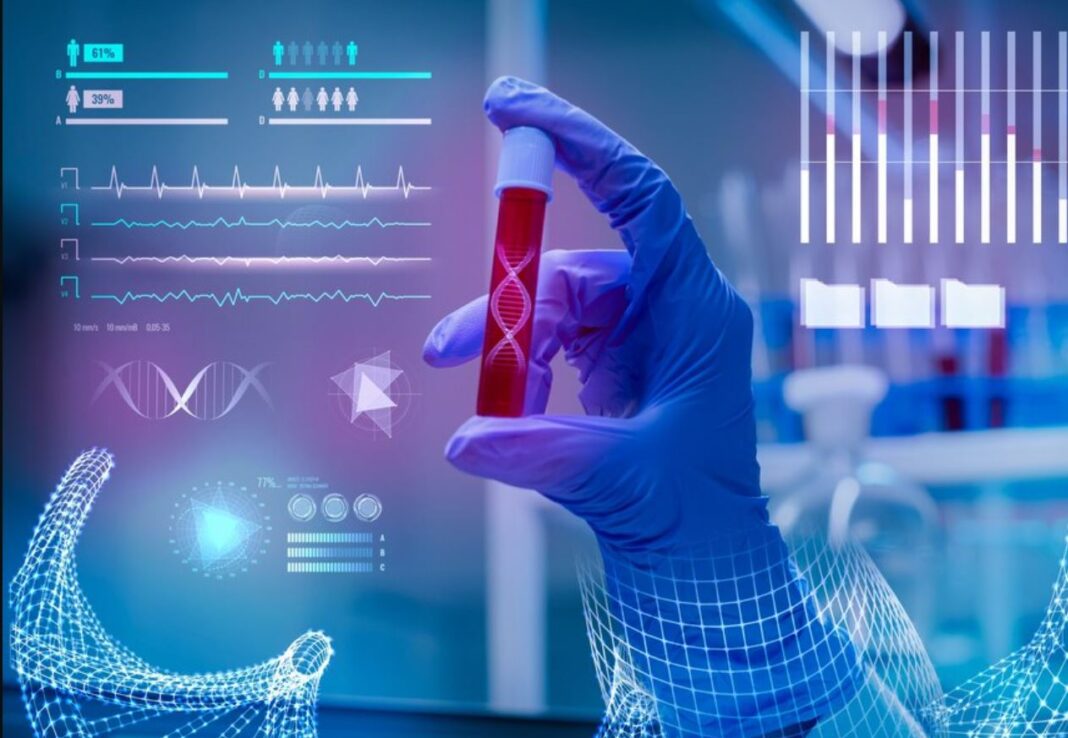The integration of Artificial Intelligence across various industries through the years has been nothing short of revolutionary. One domain where AI has been making significant strides is none other than the expansive realm of healthcare.
From diagnosing diseases with unprecedented accuracy to streamlining optimising tasks, AI has been instrumental in reshaping the entire healthcare industry in ways unimaginable.
Did you know that by the end of 2030, AI in the healthcare market is estimated to witness a humongous growth, amounting to as much as $187.95 billion?
On that note, mentioned below is a detailed article wherein we will explore some of the most profound impacts of Artificial Intelligence on medical diagnostics.
Early Detection And Diagnosis
AI has made a big impact on medical diagnosis by being able to spot the initial signs of illnesses. Through a combination of AI and smart data analysis methods, AI-driven tools can sift through large amounts of data to pinpoint patterns that suggest diseases like cancer and diabetes with greater precision.
Personalised Medicine
The integration of AI in medical diagnosis has also made it possible to offer personalised medicine recommendations to every individual. AI-driven tools can successfully analyse a person’s unique characteristics, which include their medical history, lifestyle factors, and more. Based on the information gathered, it can then provide tailored treatment recommendations, helping doctors choose the most effective mode of treatment for their patients. This enhances the treatment outcomes and significantly reduces the chances of adverse effects.
Remote Patient Monitoring
Ai-powered wearable devices carry the ability to constantly collect and analyse vast amounts of patient data while simultaneously generating real-time insights for both patients and healthcare providers. This has paved the way for timely intervention and significantly reduced the burden on healthcare professionals.
In addition to this, the emergence of telemedicine services has also now made it possible for healthcare companies to access and provide the best care to individuals, even without meeting them in person.
Robotic Surgery And Robotic Assistance
Last but definitely least is the integration of Artificial Intelligence into surgical procedures, which has been successful in minimising the chances of human errors, pain, and other side effects. In addition to this, it has also empowered physicians to operate on their patients with much more efficiency and precision. From better imaging and greater accuracy, robotic surgery has truly been one of the most notable trends in the vast realm of the healthcare industry.
Disadvantage Of AI In Healthcare
While talking about some of the many applications of Artificial Intelligence, it is also important to take a look at a few disadvantages of the same.
Training Complications
Although the integration of AI has undoubtedly brought forth numerous benefits, to access the same, medical professionals require extensive training. Furthermore, the AI tools themselves also have to be trained with curated data in order for them to work efficiently.
Too Much Change Can Be Difficult To Handle
Regardless of the industry, too much change can sometimes be quite disruptive. This is especially true in healthcare, wherein key decisions can be the difference between life and death. The key is to strike a proper balance and ensure that each and every department of a healthcare organisation is fully prepared before the AI solutions are rolled out.
Increased Security Risk
Yet another lingering threat of this integration of AI into healthcare services is cyber attacks. AI tools can be quite vulnerable to security breaches, which can be a huge problem for any healthcare institute since they essentially deal with vast amounts of confidential patient data.
As time has passed, cyberattacks have grown more intricate and precise, which makes them challenging to foresee and stop. In these situations, organizations have a primary responsibility to allocate substantial financial and other resources in order to defend against cyberattacks.
Inaccuracies Might Occur
While AI has proven beneficial in healthcare by reducing human errors, it hasn’t completely eradicated inaccuracies. Particularly when dealing with extensive data, there’s still a chance for inaccuracies and the possibility of data gaps. This can lead to significant consequences, especially in the realm of medical prescriptions.
Conclusion
The integration of Artificial Intelligence into medical diagnostics marks a pivotal movement in the evolution of healthcare. With its ability to enhance early detection, improve diagnostic accuracy, and personalise treatment approaches, AI has the potential to save lives and improve patient outcomes. However, that being said, all the challenges and ethical considerations that come alongside also need to be addressed diligently.
The key is to strike the perfect balance between innovation and ethical consideration to foster trust in AI-driven healthcare solutions. Only then can we be focused on shaping a more efficient, effective, and patient-centered future.



